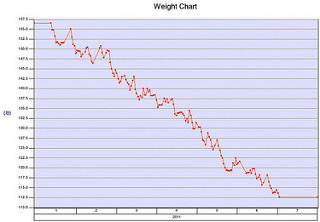Optimal Foods For Weight Reduction
When we begin and end many types of diets it can have a negative effect on our body metabolism. Every time you start and stop another diet plan, it becomes more difficult.
Here’s the reason why:
When you drastically cut calories, your body goes into starvation mode. Your metabolism slows to a snail’s pace, because it thinks that there is a period of famine, and it is trying to conserve energy. This makes it hard to lose the fat you desire, because your body is trying to store it. To make this problem even worse, your body will tend to drop muscle and try to store fat. It does this because muscle consumes much more energy than fat. This will result in muscle loss and fat storage, which is the opposite of what you want to do.
We are going to focus here on which are the best foods to consume for your weight loss program. We will consider a way to
quickly lose weight, by choosing the right foods. Not many of us are going to limit ourselves to eating all of the foods we are supposed to all of the time. However, a good knowledge of what we should eat will help us in making the better food choices the majority of the time. Surely, the better our diet, the more likely it is that our weight loss program will have a successful outcome. This applies to any weight loss routine.
Let’s start with a short description of the type of foods we we’ll be talking about:
Carbohydrates
Carbohydrates are simple and complex sugars that the body uses as energy. Simple Carbohydrates or simple sugars are typically sweet-tasting glucose and are rapidly metabolized by the body and converted into energy. Simple sugars need almost no digesting, they enter the bloodstream immediately with no digestion.
Examples include: table sugar, fruit juice, candy, fruit, syrups etc.
Simple carbs or simple sugars are typically high on the glycemic index, so they tend to cause a rapid rise in blood sugar. Simple carbohydrates are ideal for energy, but not so good for appetite and blood glucose control.
Complex carbohydrates or complex sugars are many sugars linked together. Because the molecular structure of complex carbohydrates is more complicated, the body cannot metabolize them (convert them) into energy as quickly as simple carbs. This means complex carbohydrates increase blood sugar levels more slowly which is terned a low glycemic food. The most commonly occurring form of polysaccharide complex carbohydrate is starch, which is normally found in plant sources.
Common plant-based starchy foods include breakfast cereals, bread, potatoes, pasta and rice.
Good Carbohydrates: The more natural, the better. Fruit , vegetables, yams, and whole grains, such as oats, are all great carbohydrate sources.
Bad Carbohydrates: White flour, enriched products, pasta, and anything that has refined sugar or high fructose corn syrup. To achieve
quick weight loss avoid these carbohydrates.
Word of Caution: Consumption of too many carbohydrates will send your blood sugar hormones through the roof! An excess insulin leads to fat storage and subsequently to type II diabetes. The best way to prevent this disease is by not overloading yourself with bad carbohydrates.
Proteins
Proteins are the basic building block needed to build strong muscles, joints and ligaments. They are essential for the body to heal, repair and grow. Protein has a low glycemic index and won’t cause your body to store fat. Great sources of protein are chicken, turkey, fish and lean red meats. Whey protein is also great. Bad protein sources are those that also contain a lot of fat include hot dogs, cheese, most cold cuts, hamburgers etc.
Fiber
Fiber has many benefits. Fiber is good for removing toxins from your digestive tract and also to keep your bowels moving properly. Fiber helps prevent colon cancer by maintaining a balanced pH in your intestinal tract. Fiber prolongs stomach emptying time so that sugar is released and absorbed slowly preventing sugar spikes and release of the fat storing hormone insulin. Fiber lowers total and LDL cholesterol and therefore reduces the risk of heart disease, and fills up your stomach reducing your appetite. Fiber can also bind up fatty acids in your digestive tract to assist you in weight loss. As you may have noticed, fiber in your diet is a great way to lose weight and improve your health!
Some great sources of fiber include:
– Green vegetables and lettuce
– All types of dark green leafy vegetables
– Whole grains
– Corn bran
– Seeds and nuts
– Apples and citrus fruits
– Broccoli
– Many types of beans like black beans, kidney beans, chick peas, and many others
– Lentils
– Figs
FATS
Some fat is essential for a human being to survive. There are two essential fatty acids that we cannot live without. The others can be made by your body. The essential fats are alpha-linolenic acid (ALA) and linoleic acid (LA). The remainder of the necessary fats can normally be made by your body. All the cells of your body need fat. Fats protect and insulate your organs, including the lungs, heart, liver, kidneys, and pancreas. Fats help store and transport fat-soluble vitamins (A,D,E, and K). Fats assist in mineral absorption, slow the absorption of carbohydrates in your intestines thereby helping to manage blood sugar levels and reduce hunger, making your feel “full”.
A large body of scientific research suggests that higher dietary omega-3 fatty acid intakes are associated with reductions in cardiovascular disease risk. Thus, the American Heart Association recommends that all adults consume fish at least twice a week.
Good Fats:
– Omega 3 fatty acids: cold water fish.
– Naturally raised grass and vegetable-fed animals,
– Flaxseed, almonds, and walnuts.
– Extra virgin olive oil (cook with at low heat).
– Coconut oil (cook at high heat).
– Note: Oils can become damaged and go rancid when cooked, resulting in destructive effects. Use olive oil and coconut oil, because they are stable under heat and won’t become rancid when heated and are healthy to use.
Fats To Avoid:
– Omega 6 fats
– Hydrogenated oils
– Trans fats
– Cooking oils (vegetable, nut, seed)
To see how you can lose weight rapidly visit us at:: quick weight loss
To learn how to maintain your losses for the long term go to: quickly lose weight
-
The Herbal Supplements For Weight Loss
by Lindelwa Maseko Unfortunately the recent popularity of natural and
-
Eating Disorders: A MAN’S Problem?
Eating disorders can be one of the most harmful and troubling thing
-
How to Write Your Articles About the Author Bio to Increase Website Traffic
As business owners, you boost your exposure and credibility by wri
-
Tips To Lose Weight Really Fast
Everyone needs to stay fit and in shape. Fitness and stamina form the
-
Best weight loss exercise for great results
There is no better way to burn off calories but to sweat it out
-
Stop Eating Chocolate
It appears that the various weight loss companies who previously encou
- DON'T MISS
- Tips For Getting Six Pack Abs
- Designing a Child Weight Loss Plan
- Weight Loss Success Are Men Better At Dieting Than Women
- Lesson Learned: 5 Women Reveal Their Weight Loss Fails
- How To Burn Belly Excess Fat
- 3 Hormones That Can Influence Weight Loss
- How Much Should I Walk To Lose Weight? - Helpful Information
- The Psychology Of Weight Loss Getting To The Roots Of The Matter
- Two Things That Make You Fat
- Turning 40 Inspired Me to Lose 75 Pounds




